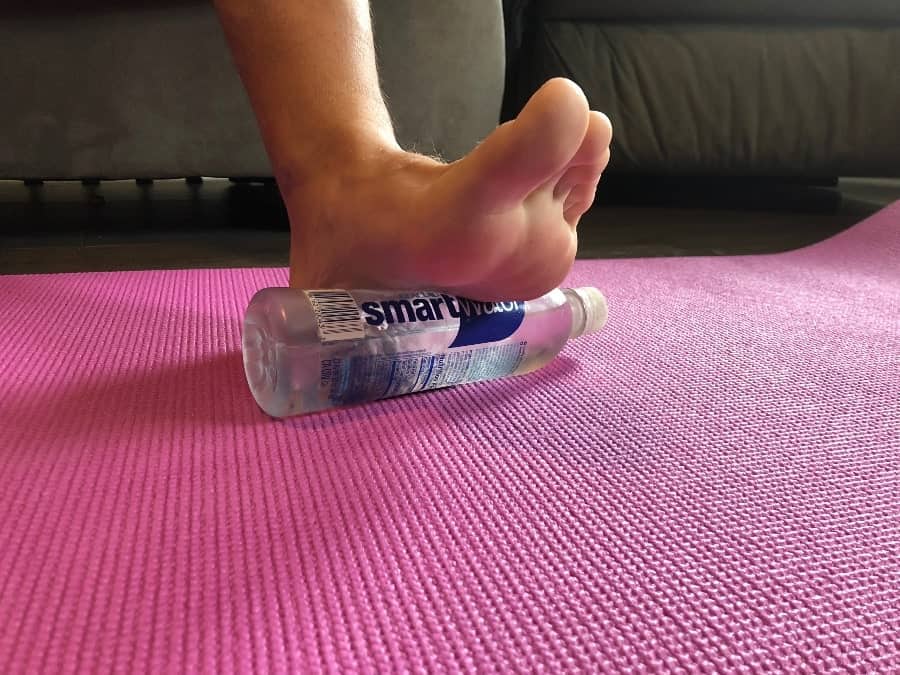Disclosure: This page may contain affiliate links, meaning we receive a commission if you decide to make a purchase through our links, but this is at no additional cost to you. Please read our disclosure and privacy statement for more info.
Being pregnant cannot be easy. You have to contend with all of the physical strains associated with growing a human within and do the emotional work of preparing for the new baby’s arrival. We’re exhausted just imagining it all, but somehow you expectant moms still manage to come to work!
We may not know exactly what you’re going through, but we’d like to support you working moms in the best way we know how; by taking some of that emotional load off you and make your work-life a little more manageable, particularly if you work night shifts.
The key to surviving night shifts while pregnant is prioritizing yourself and your baby. Planning ahead helps to set yourself up for success at work, while recognizing you may not be able to do everything you could do when you weren’t pregnant.
We have put together the following seven tips to help you develop your own strategy for surviving your night shifts while pregnant, but we think this information would be helpful for all pregnant shift workers. Every pregnancy is different, or so we’ve been told, so feel free to take this information and personalize it to suit your needs, we just hope you will come away feeling more empowered to take on your work-life while pregnant.
Pregnancy Tip 1: Be Kind to Yourself
We heard this advice from veteran moms, over and over again, so it must be important!
In addition to knowing the risks associated with working night shifts when pregnant, it is also good to know and acknowledge your physical limitations. Because truth be told, you are not going to be able to do the same things now that you are growing a baby, nor should you.
So, cut yourself a break and pay attention to the cues your body will be giving you. Be kind to yourself!
Here are the top nuggets of advice that we kept hearing from moms who worked through their pregnancy and found ways to be kind to themselves.
Conserve Your Energy
It takes a lot of energy to grow a baby, and energy is especially premium for working-moms-to-be.
One way to be kind to yourself is to conserve your energy and only use it for the things you absolutely need and want to do, meaning it’s okay to cut a few corners if needed.
Here are a few creative ways veteran moms saved energy in every-day life:
· Use paper plates and disposable cutlery to save energy washing up after meals.
· Take your car through an automatic carwash instead of doing it by hand, if needed.
· Ask for a robotic vacuum on your baby shower registry, to reduce housework.
· Take the elevator instead of taking the stairs.

Go at Your Own Pace
Cutting corners may not be an effective strategy once you are at work, but veteran moms do stress the importance of going at your own pace.
This will mean different things to each one of you, but the commonly repeated advice includes:
· Asking for help when you need it, especially when it comes to physically demanding tasks such as bending down or lifting heavy objects.
· Let someone else handle disgruntled passengers, patients, customers, etc. You do not need the extra stress and you certainly don’t want to be nearby if things get violent.
· Allow yourself to take frequent rest breaks, even if it just means sitting down for a moment or two, stopping to take a gulp of water, or practicing a few breathing exercises.
Accept New Limitations
Pregnancy is very physical and the changes going on in your body both physically and hormonally can trigger some very strange new sensations, which could also translate into new work-related limitations.
Pregnancy comes with a number of wacky symptoms that can impact your work-life, depending on what kind of job you have.
Here are two examples that working-moms happened to mention.
· Hyperosmia: Hyperosmia refers to a heightened sense of smell that can develop during pregnancy. A nurse-friend of ours happened to mention how much this interfered with her work, because she was no longer able to tolerate the typical smells associated with her job-description. The smell of blood would send her into a fit of nausea.
· Vertigo: Vertigo is dizziness caused by either increased hormones, your expanding circulatory system, increased body temperature, and/or the pressure your uterus begins to put on your blood vessels. It can be extra dangerous for shift-working moms in the airline industry, because air travel and g-forces can exacerbate vertigo.

Pregnancy Tip 2: Be Realistic
This second tip might sound a bit harsh and like tough love, but it is really important to know the risks of working night shifts while pregnant.
There is emerging evidence that working night shifts can increase your risk for a few pregnancy complications including miscarriage, pre-term deliveries, low birth weight, and pre-eclampsia.
Working swing shifts seemed to exacerbate these risks further, according to a study conducted in Denmark by Dr. Luise Molenberg Begtrup.
We don’t mean to alarm you with this information, and researchers insist you shouldn’t be, either. It is simply good to know the risks and understand why they affect night shift workers.
According to the US Center for Disease Control and Prevention (the CDC), night shifts and swing shifts contribute to pregnancy complications because they disrupt the circadian rhythms of expectant mothers, which, in turn, disrupts how hormones are regulated during pregnancy.
That said, experts believe that these risks can be effectively mitigated by developing healthy strategies for mitigating these risks. We’ll be providing information about all sorts of possible strategies throughout this post, but here are a few important ones right off the bat.
· Have the number of your Obstetrics and Gynaecology doctor (OB-GYN’s) Saved: Having your trusted OB/GYN’s number handy is important in case, heaven forbid, an emergency occurs while you’re at work. Dr. Deppinder Kaur (OB/GYN) also recommends giving this number to a trusted colleague that you can count on, so they can call if you cannot; a situation we hope you never find yourself in.
· Set healthy boundaries: Learning to say no is going to be an important part of prioritizing yourself and your baby at work and being realistic about what you can do while pregnant.
For example, you should consider saying “No” to overtime, extra shifts, coming to work sick, skipping your break, and doing tasks you aren’t comfortable with.
· Don’t Compare Yourself to Others: Every pregnancy is different. It doesn’t matter if your best friend Sue was able to do XYZ, if you can’t, don’t stress just go at your own pace and be gentle with yourself, which brings us to our next tip…

Pregnancy Tip 3: Identify Stressors and Develop Coping Skills
Stress is one of the main reasons that night shifts are correlated with pregnancy complications. Stress alone can increase the chances of having a premature or low-birthweight baby, and there are a number of stressors that can plague expectant mothers. But luckily, there are also a number of coping skills you can use to help lower your stress levels.
Working night shifts is stressful enough already, let’s be honest. But working night shifts while pregnant can add to that stress load in a number of ways.
· Physical symptoms can contribute to your emotional stress, because, well, morning sickness and physical discomfort sucks.
· Hormone changes can make you more susceptible to stress and mood swings.
· Birth may be daunting you, especially if it’s your first child or you’ve had a traumatic birth experience in the past.
· Perhaps you are worried about taking maternity leave and how it might impact your career and family life.
Dealing with all of those on top of your usual work-related stress can be overwhelming but these stresses are normal, and completely valid so don’t beat yourself up over them. Instead, try out some of these coping mechanisms veteran moms recommended to us.
· Work with a therapist: Working with a therapist during pregnancy is highly recommended because they can help you identify stress and develop effective coping mechanisms.
· Develop a mantra: This can be particularly helpful if you are confronting pregnancy/parenting related stress. A simple mantra to the tune of “I am completely ready to take care of my baby,” can help ease your mind in overwhelming moments.
· Start practicing breathing exercises: Breathing exercises are known to reduce stress and as an added bonus they will help you relax during labor.
· Try aromatherapy: Aromatherapy can help you relax and can help you baby your nose if you are struggling with hyperosmia. We recommend getting an aromatherapy necklace (sounds strange but very effective!) or checking out the diffuser we use on our shift work tools page here.
Everyone deals with stress differently, but it is important to find something that works for you and that can be effective at work.

Pregnancy Tip 4: Manage Physical Symptoms
The physical symptoms of pregnancy do not sound like much fun. From morning sickness to back pain and swelling feet, there are so many physical symptoms that can make working while pregnant a real drag. So here are some tools to help.
Coping with Nausea
The term “morning sickness” is misleading because apparently, you can get morning sickness at any hour of the day when pregnant. That means it can plague you during the night shift too, so here are a few recommendations for coping with nausea at work.
· Consume ginger: Ginger is scientifically proven to settle an upset stomach and it comes in many forms. You can try ginger tea, ginger chews, real ginger ale, or even ginger capsules. We got a recommendation for these capsules from a flight attendant who used them while pregnant and now swears by them for airsickness too.
· Take your prenatal vitamins after your shift: The iron in prenatal vitamins can make you nauseous so taking them after your shift can help lower the chances that you’ll feel nauseous at work. The best time to take them is right before you go to bed.
· Pack a cool compress or washcloth: Applying a cool compress to the back of your neck can be very soothing when your tummy is upset.

Coping with Swelling
Your body produces 50% more bodily fluids when you’re pregnant to help meet your needs and the needs of your growing baby. As a result, swelling, known as edema, is common, usually in your legs, ankles, and feet.
These are the physician recommended ways to prevent foot swelling at work:
· Rest frequently and elevate your feet.
· Wear compression socks or tights to support better circulation. These socks are great! If you want to learn more about compression socks we wrote an entire post about it here.
· Wear comfortable shoes. (Psst Flight Attendants: ditch the heels!). If you’re battle foot aches and pains this post may be helpful.
· Reduce your sodium intake.
If all else fails the American Pregnancy Association recommends soaking in a pool to help reduce swelling, but avoid the hot tub as tempting as the warm heat may be. It is also recommended to ice swollen feet after your shift to help keep swelling in-check.

Coping with Back Pain
Apparently back pain is caused by four natural consequences of pregnancy, some of these reasons were surprising to us so we thought we’d share them all.
1. The weight of your growing baby can strain your spine and put pressure on the nerves in your pelvic region, causing lower back pain.
2. Posture changes take place as your center of gravity shifts, this puts strain on your spine and the muscles of your back.
3. Hormonal changes actually cause the ligaments to loosen, this is meant to prepare your pelvic region for birth, but it can impact the ligaments in your back too.
4. Muscle separation occurs as your baby bump expands and pushes them apart, this separation can worsen back pain.
To treat this pain and support your back for better posture, most doctors recommend wearing a pregnancy brace, especially during your shifts.
Braces like this one may even be eligible for reimbursement from your health insurance.
Exercise for Pain Management
Exercising during pregnancy is a great way to help manage physical symptoms. It can boost your energy, help you sleep better, decrease pain and swelling, and even help prepare your body for childbirth.
One of the main focuses of your fitness routine during pregnancy should be strength, paying special attention to your core and back as these muscles doing the heavy lifting during your pregnancy to hold your bump, they will also be doing the lion’s share of the work when it comes to giving birth.
Nikki Klasnic is a personal trainer who specializes in pre and post-natal fitness. Her videos on YouTube are a fantastic place to start if you want to learn more about deep-core connection and how it will help you stay in shape throughout your pregnancy and possibly have an easier go of delivering your child when the time comes.
Pregnancy Tip 5: Know Your Rights
Moms have rights that include maternity leave, sick leave, and protections against work-place discrimination. These rights are important, and we have generations of women who came before us to thank for them.
As much as it stinks to admit it, this section is really going to be directed at our US based audience, who do not have the same protections enjoyed by the Australian, Canadian, or European moms reading this article.
We did collect some useful links to our non-US audience too:
· If you are from Australia, click here for info, and here to apply for leave.
· If you are from the UK, click here.
· If you are from Canada, click here.
Note: We’re sorry to leave out folks who come from somewhere else in the world, we hope you live in one of the 120 countries that do offer paid leave and protections.
Okay, now for our US-based moms, buckle up because these are some hard truths. Unlike moms in the afore listed countries, you are not guaranteed paid maternity leave based on the law. You may, however, have access to leave protections under the Family and Medical Leave Act (FMLA).
What Does FMLA Protect?
Under FMLA American workers are eligible for 12 weeks of unpaid leave per-year within one year of the birth of a child. This protects you from being terminated by your employer due to your absence at work.
There is a BIG caveat though: this only applies to you if your employer has 50+ people on the payroll.
To apply for FMLA protections you will need fill out some paperwork and oftentimes have your doctor sign it. The standard FMLA forms are available on the US Department of Labor Website but each individual employer may also provide forms.
This FAQ page is also really helpful and goes into detail about some of the eligibility requirements for FMLA. Keep in mind you have to have 12 months of consecutive employment to qualify for FMLA.
Note to Aviators in the US: Some major US airlines have punitive attendance polices that can result in termination if you miss more than 10 days of work. FMLA protections are available for you to use while pregnant.
Paid Maternity Leave in the United States
Paid maternity leave is offered in a handful of states, and by about 40% of US-based employers. Typically, this lasts just 4-weeks, however.
If you are not lucky enough to work in a state or at an employer that offers paid parental leave, you may be able to draw money from a short-term disability policy, use paid vacation time, or burn through cumulated sick days to pay the bills.
Suffice it to say, US moms are going to have to do a little more work when it comes to preparing for maternity leave.

Pregnancy Tip 6: Share Your Big News at Work
Legally you don’t have to tell anybody anything, but that might not be the best approach, since you’ll want folks at work to be sympathetic and understanding later on.
Most women seem to begin sharing their news after the first trimester, before their pregnancy starts to become obvious.
Telling Management
Before telling management or Human Resources (HR) that you are expecting, do your research and know your rights.
As we alluded to above, there is a lot of variability when it comes to your rights and protections as a mom, and these things are constantly changing. You should probably also prepare yourself for both positive and negative reactions, though we hope your boss is a decent human being and has nothing but nice things to say.
An advice forum in the US recommended telling your boss before the rest of your coworkers because you will be able to gauge their reaction and use that information in your negotiations for maternity leave.
If you have a Union, and/or an HR department, let them know too so you can get the protection you need, should you find you are suddenly being discriminated against.
Telling Your Coworkers
Telling your coworkers your pregnant should be a little less scary and should be cause for celebration. Hopefully, you have a few work-friends that you can count on to share your excitement and even back-you-up when needed.
We loved one story of work-place support submitted to us by a 9/11 dispatcher who used to “dispatch” unoccupied police officers to bring her chocolate milkshakes.
You might also be interested in: Shift Work and Family: A Practical Guide for Busy Parents.
It’s never too early to start putting together your village!

Pregnancy Tip 7: Fall Back on Your Healthy Habits
Your healthy habits are even more important once you fall pregnant, especially if you work night shifts. After all, you are sleeping, eating, and hydrating for two. In that sense, this tip is really a four-for-one.
Sleep Hygiene for Pregnant Night Shift Workers
You should be getting 8-10 hours of sleep during pregnancy, which is defiantly a task for night shift workers. But lack of sleep is the main reason, night shifts are correlated with pregnancy complications.
Day sleeping is hard enough when you’re not pregnant, but our veteran moms tell us that there is an additional challenge that you’ll face when your bump starts to form; getting comfortable.
Perhaps this is why these moms swear by their pregnancy pillows. Some love a U-Shaped pillow others prefer a wedge pillow.
It also helps to nap often, so why not consider sneaking in a power nap during your night shift.
For more general information about how to get better sleep on the night shift we recommend checking out the many wonderful sleep articles we have on our blog!
Eating for Two and The Night Shift
It is recommended to work with a dietician to figure out how much you should be eating during the various stages of your pregnancy, but in addition to increasing the volume of what you eat, you will also want to change how you eat.
Here are a few pointers some veteran moms gave us to help you eat for two and your shift.
· Stash snacks everywhere, that way you can grab them anytime you start to feel hungry.
· Eat smaller meals more often this helps stave off morning sickness and prevents bloating.
· Incorporate foods packed with protein, vitamins, healthy fat, fiber, and complex carbs.
You might also like: Healthy Meals for Shift Workers (with Recipes and Videos).
Of course there are also foods that should be avoided while pregnant.

Cut Back on Caffeine
This is going to be hard if you work night shift, but current medical guidelines advise pregnant women to cut back on their caffeine intake by limiting their consumption to 200 milligrams per day.
If you have been reliant on coffee, we recommend switching to tea. Green tea in particular has relatively low levels of caffeine, so it is generally considered safe to drink up to four cups per day.
Though, if you can cut the caffeine cold-turkey you may want to consider switching entirely to herbal teas that can benefit you during pregnancy.
Here are some other beverages you may enjoy overnight too.
Make Sure you Hydrate for Two
According to the Institute of Medicine, pregnant women need to drink about 16 ounces more each day for a total of 80 ounces per day. Not all of this has to come from water, but you should consider that not all beverages are created equal.
To help you keep track we recommend downloading the Hydrillo app. This app will let you save your favorite beverages and help you calculate how hydrating they are. Milk for example has a hydrating factor of 120% whereas coffee has a hydrating factor of 90%.
Drinking enough water is important though because it will help you manage symptoms of swelling.
[VIDEO] – This mom worked as a nurse until 39 weeks. Check out her story and tips below.
Final Thoughts About Surviving Night Shifts while Pregnant
We certainly admire all working-moms, but it defiantly takes a true trooper to push through shifts while growing a small human. We hope this list of tips will help you manage working night shifts during your pregnancy!
Take care of yourselves and congratulations to all of the expecting mothers in our audience.
If you’d like to keep reading, you’ll enjoy this one – Tactful Tips for Pregnant and Postpartum Night Shift Nurses

Disclosure: This page may contain affiliate links, meaning we receive a commission if you decide to make a purchase through our links, but this is at no additional cost to you. Please read our disclosure and privacy statement for more info.

Sources:
- Fields, Kitty. “How to Survive Pregnancy while Working the Night Shift.” We Have Kids. Web.
- Kahn, Aliya. “Working In Night Shifts During Pregnancy – Is it Harmful.” First Cry Parenting. Edited by Dr. Deepinder Kaur (OB/GYN). Aug 21, 2018. Web.
- Nuñez, Alanna. “Can you Drink Coffee While You’re Pregnant?” What to Expect. May 6, 2020. Web.
- Levine, Hallie. “How to Tell Your Boss You’re Pregnant.” The New York Times. Apr 17, 2020. Web.
- Dr. Chandra, Pushpa. “Working night shift while pregnant: survive and thrive!” Shift Workers Health. Web.
- Kelly, Diana. “6 Ways to Relieve Stress During Pregnancy.” Parents. Feb 14, 2019. Web.
- Reutter, Kathleen. “8 Ways to Treat Morning Sickness Naturally.” One Medical. Nov 16, 2018. Web.
- Pratt, Elizabeth. “Night Shifts May Increase the Risk of Miscarriage During Pregnancy.” Healthline Parenthood. Apr 2, 2019. Web.
- Faculty of Occupational Medicine. “Advising women with a healthy, uncomplicated, singleton pregnancy on: shift work and the risk of miscarriage and preterm delivery.” Royal College of Physicians. Web.
- “Stress and Pregnancy.” The March of Dimes. Oct 2019. Web.
- National Institute for Occupational Safety and Health. “Reproductive Health and the Workplace.” Center for Disease Control and Prevention. Nov 15, 2019. Web.
- “Caffeine During Pregnancy.” American Pregnancy Association. Web.
- Lewis, Rhona. “How Much Water Should a Pregnant Woman Drink?” Healthline Parenthood. Edited by Carolyn Kay, MD. Jul 20, 2020. Web.
- O’Connor, Amy. “Heightened Sense of Smell During Pregnancy.” What to Expect. Dec 2, 2020. Web.
- “Swelling During Pregnancy.” The American Pregnancy Association. Web.
- Murkoff, Heidi. “5 Strategies for Working While Pregnant.” What to Expect. Nov 27, 2018. Web.
- Klasnic, Nikki. “Core Breathing Belly Pump Breathing Exercises: Pregnancy Tips.” YouTube. Jun 19, 2018. Web.
- “Back Pain in Pregnancy.” WebMD. Web.
Recent Posts
An examination of the night shift professions, that while sometimes underappreciated, are necessary for civilization, in its current form, to exist. A city can be thought of as a machine. Each...
Culminated from an exhaustive yet well-funded journey into the night, this article will prepare you for life outside of work while being a denizen of the dark. During days off, night shift...


